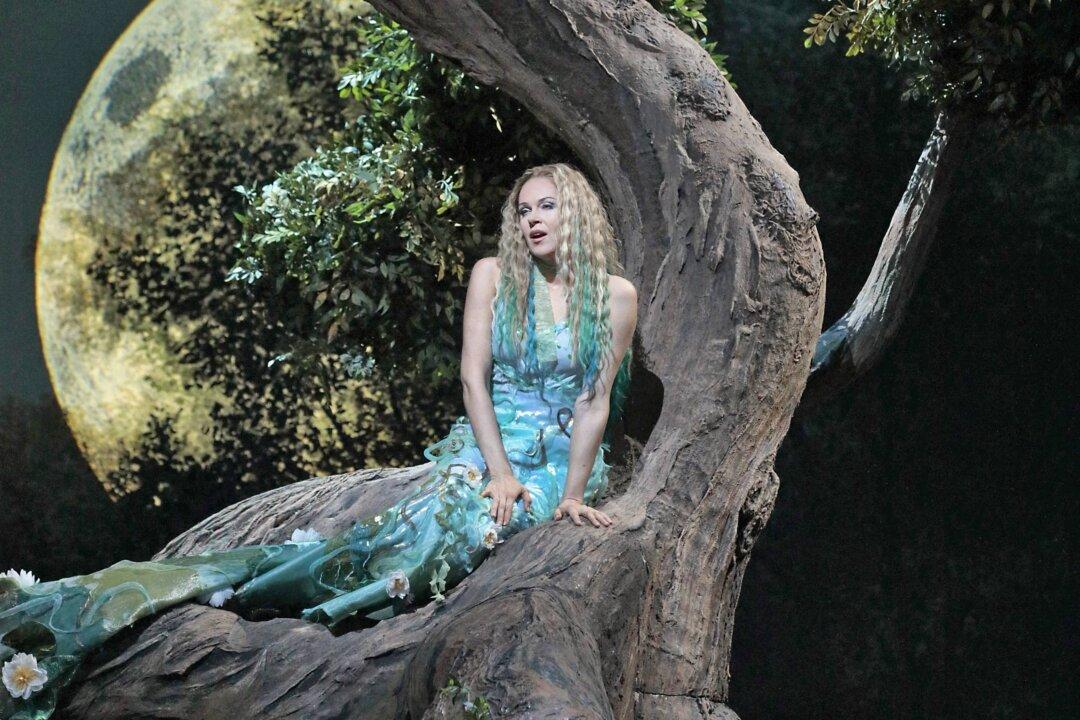NEW YORK—Antonin Dvorak (1841–1904) wrote 10 operas, but only one became popular around the world: “Rusalka.”
It took almost a century for the work, which premiered at the National Theater in Prague in 1901, to be performed at the Metropolitan Opera in 1993, but now it is back in a new production, directed by Mary Zimmerman and starring Latvian soprano Kristine Opolais.
The fairy-tale plot involves a water nymph, Rusalka, who sees a handsome prince swimming in the lake and immediately falls in love with him. Her father, the Water Sprite, warns her that humans are intrinsically evil. Though he is opposed to his daughter’s plan, he nevertheless refers her to the witch Jezibaba. Rusalka implores the Moon to communicate her love to the Prince.
The title character is one of the signature roles of Latvian soprano Kristine Opolais.






